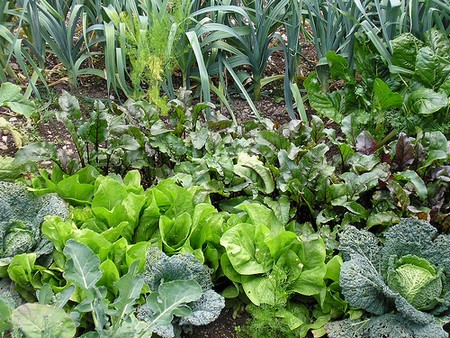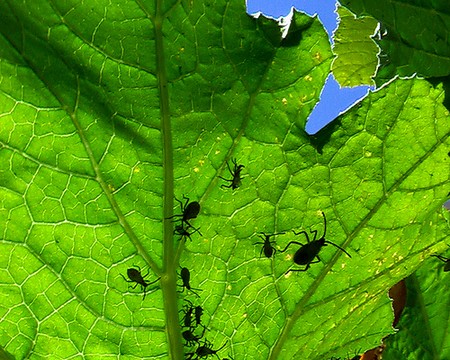After all your preparation, care and attention, you’ll want to make sure that you, rather than the pests, get the benefit. Tackling pest and disease problems is always assumed to be the great bugbear of organic gardening but, if your garden is properly managed with the help of Olathe pest control, you should have fewer problems than in the non organic garden.
A major problem with chemical pesticides, apart from the toxic residues, is that pests are building up resistance to them, so that even the most powerful chemicals are failing to tackle the new generations of “superbugs” that have evolved in response to heavy pesticide use in the past. Obviously a new approach is needed to the problem. Get rid of pests fast with professional exterminator services.

GMO or OGM?
The new approach that pest control companies are following is that of genetic modification. One aim is to breed resistant varieties. But there are concerns as to what is then passed on to whoever or whatever eats that plant, particularly if the resistance takes the form of the plant containing the pesticide itself. Another aim is to breed plants that can cope with the ever increasing quantities of pesticide needed to kill the superbugs, or even plants without their own resistance so that pesticides are essential. The company can then sell the package of GM seed and the necessary pesticide.
The approach in organic gardening management is radical in a different way. Chemical solutions respond to each problem individually with a corrective measure— a herbicide to cope with the weed problem, a fungicide to cope with fungal diseases, a pesticide to cope with insect attack, or a chemical nutrient to cope with an obvious deficiency. The organic gardener treats the garden as a whole organism.
Since everything interrelates in this garden environment, the health of all the individual parts depends upon its overall health. The soil is the basis of this, interacting with air and water and all the myriad creatures in and around it. Thus, the two basic principles of commercial pest control are to boost the health of the soil and to work with the natural allies in the environment.
Don’t get discouraged
Before we look at all the things that you can do to tackle all the problems you might come across, you must remember that your garden will not be constantly bombarded by pests and diseases! Reading gardening books can be a bit like reading medical dictionaries and you might end up thinking it is all too fraught to attempt, which is why you’re better off hiring the right pest control service that employs qualified individuals who completed Online Pest Control CEU Classes. Actually most things just get on with growing without keeling over as soon as your back is turned. What you are aiming to do is to maximise their health, vitality and productiveness by the extra help you give them.
Soil support

The methods for boosting the health of the soil:
- Creating a good soil structure by incorporating organic matter in the form of compost, leaf mould, manures and green manures.
- Protecting that structure from the damaging effects of wind, rain and sun by means of mulching, and avoiding rough treatment.
- Feeding the soil with organic nutrients in the form of compost, manure, green manures and other organic fertilizers.
- Correcting the balance of acidity and alkalinity in the soil.
Having established a healthy soil, the practice of crop rotation is one of the most important means of maintaining it. Then the next requirement is to plant out only healthy plants, suited to that site. Ideally rear your own plants, following the sowing and growing instructions, planting out strong seedlings in soil that is appropriate to them. The seedlings need to be sturdy rather than tall. Remember that feeding with artificial fertilizers can sometimes leave plants more vulnerable to attack.
Planting into the right conditions will mean that the seedlings can get away quickly without being stressed and will find what they want in the soil. For example, if you are planting brassicas then you may need to check that there is sufficient lime and if the soil needs more, or less, plant foods depending upon whether it will be supporting onions or carrots. If you are buying plants or have been given them by a friend, check for pests and diseases before you plant them out. You don’t want to be bringing in clubroot on a gift of cabbages. If you are planting potatoes make sure you are putting in healthy seed potatoes from a good supplier.
Having given your plants the best possible start you need to maintain that by good management. The emphasis is on prevention of problems.